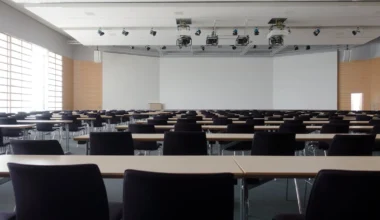
Animal lovers the world over are mourning the loss of Flaco, the Eurasian eagle owl who escaped from the Central Park Zoo on 2 February 2023 following an act of vandalism on his enclosure. New Yorkers avidly followed his movements and celebrated his success in the urban wilds for over a year, breathlessly posting photographs of him perched on buildings while he feasted on rats and pigeons. Indeed, his adaptability to the hostile Gotham environment was remarkable, especially given the fact that he had been born in captivity in 2010. He had never had to forage for himself until that fateful night, but millennia of genetic programming kicked in almost immediately.
It was, if simpering media coverage was to be believed, an inspirational tale of resilience and the desire of wild things to be free. This reaction is an understandable one. Many of us find ourselves conflicted about the ethics of keeping animals in captivity, deprived of outlets for their instincts and constrained by enclosures a tiny fraction of the size of the territories they would patrol in their natural environment. Zoos can undoubtedly educate the public about wild animals and have done admirable work in breeding threatened and endangered species for reintroduction into restored habitats.
At the same time, even the best of them are morally repulsive sideshows. Go to any zoo and watch how people interact with the animals. How many do you see thoughtfully observing their behaviour and reading the carefully crafted signage? And how many do you see pounding on the glass and loudly chattering and generally treating the animals as curiosities, caged for the visitors’ amusement? In my experience, the latter form the majority of zoo-goers.
Flaco’s enclosure was indeed miniscule. It is unclear how much he was offered in the way of behavioural enrichment. If there was any at all, it would have been a morsel of what he would have experienced in the forests of Europe and Asia, to which his species is native.
I, too, couldn’t help but cheer a little at his cleverness, his proof that captivity does not equal domesticity. But that naive moment of joy was quickly replaced by a sense of dread. Even if he was able to find food, it struck me as extraordinarily unlikely that he would survive the novel threats of a large city for long. Reflective glass—a major killer of migratory birds. Poisoned rodents—a major killer of raptors everywhere. Incessant traffic—need I say more?
As inspiring as Flaco’s escape was, a fatal accident seemed all but inevitable. Yet, weeks later, after he had evaded multiple traps, the zoo ceased trying to recapture him. This was clearly a dereliction of responsibility. Still, his continued freedom was cheered by a populace whose Disneyfied view of nature led them to view this as a victory. It wasn’t.
A more informed populace might have put pressure on the zoo to resume its efforts—and to improve his captive conditions once he was safely in hand. Instead, a gormless and myopic view took precedence. He was a fantasy come to life, a living, breathing instantiation of a ubiquitous platitude: spread your wings and fly.
That he did, for over a year. But ultimately, he flew right into a window and died. An autopsy revealed that he was full of rat poison—unsurprising to anyone who follows bird-of-prey conservation. Rodenticides kill countless hawks, owls, and other birds of prey each year. One study of dead raptors in New York City found that 84% had rodenticides in their systems. And, perhaps even more disgustingly, Flaco was found to have a raging herpes infection contracted from pigeons that he had eaten.
That such a magnificent animal should have met his fate crashing into a building ought to serve as a bloody rejoinder to the insipid and vacuous moral landscape of the middle and upper classes.
The term ‘pathological altruism’ describes the tendency to privilege the perceived welfare of a certain group or entity over any potential consequences that might ensue from that perception. Violent, mentally ill criminals are given light sentences or allowed to roam free prior to trial because of their backgrounds or their unfortunate circumstances. Discipline in schools is foregone due to the fear that punishment might make things worse—for the perpetrator. Delusions of all sorts are allowed to go unchecked—even if they result in unfairness for others—due to a reluctance to offend the deluded.
Just as institutionalising dangerous, mentally ill people or punishing kids who are disruptive and behaviourally disordered as a result of their fractured upbringings are less than ideal, so too would have been recapturing Flaco. It would have been sad to see him again confined to a dreary enclosure, feeding on white mice and unable to fly more than a few feet. But at least he would have been alive. And we could have worked to improve his circumstances.
I too mourn the loss of this spectacular creature. But I also fear that, like him, we may find ourselves flying toward a reflection that seems like an infinite, promising landscape—a portal to a new and better world—but is instead an unyielding pane of glass. And we too may break our necks.








Your email address will not be published. Comments are subject to our Community Guidelines. Required fields are marked *
Donate